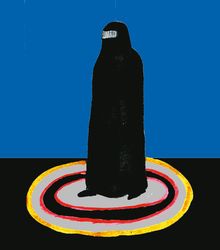I took one of the 41 daily flights to Srinagar, joining the 1.4 crore annual visitors to Jammu and Kashmir, which is the single most significant proof proffered by the Union government to proclaim the restoration of “normalcy” to the erstwhile state, now transformed into a Union Territory. There I met many Kashmiris, including sarpanches and activist politicians, teachers and students, sheep- and cattle-herders. The trip took me to the Daksum sanctuary, then over the snow-covered Margan Top at 14,000 feet, and across the breadth of the Warwan Valley that lies in the Chenab basin approximating the line that divides Jammu from Kashmir. The scenery was spectacular, but I was there also to gauge the general mood.
There was widespread agreement that there was peace in the air, the administration was functioning more smoothly than in the past, that government servants were much more regular in attendance instead of busying themselves with their private businesses, that teachers were coming to school on time and actually teaching, that development and infrastructure projects were being implemented, and that corruption was significantly reduced. Much like in Mussolini’s Italy where “the trains ran on time” but democracy was eschewed.
The single most important demand was that elections be held so that the UT is restored to statehood, and a representative state assembly could work towards the “restoration” of Articles 370 and 35A. When I retorted that this would also mean the restoration of past misgovernance, it was accepted with little demur that there would be several downsides to popular government but that they accepted, indeed desired this ardently, as the government would then be their government, not one imposed from Delhi; that government servants would not be Hindi-speaking outsiders but would be administering in their language and in accordance with their culture; that they would not be humiliated by being under alien domination; and that they would be equal citizens instead of being denied their democratic rights only because they were Kashmiri.
On being asked who would win the elections in view of the gerrymandering of constituencies that has been resorted to blatantly, none seemed to doubt that it would be the National Conference of Sheikh Abdullah and his current descendants. When asked whether the “good governance” provided by the lieutenant governor’s administration would not trump mere sentiment, the unanimous response was that it was only because the National Conference would be the big winner that the Union home ministry was dragging its feet on elections. No matter, they said, whenever the elections are held Kashmir will be restored to Kashmiris, our abject humiliation will end and we will be masters of our own house, whatever the faults of our governance and our politicians and leaders. “We do not want this beggars’ prosperity. We are quite capable of promoting our own welfare and prosperity. After all, even before Article 370 was abruptly removed without our consent, we ranked higher than most states in GDP growth and per capita income, and in health and education.” But what did the hollowed-out Article 370 contain for you personally? The answer invariably was: “Article 370 was the badge of our special identity. And it was from 370 that 35A flowed. It was our guarantee that prosperity in Kashmir would be for Kashmiris and not outsiders”.
As for Pakistan, they were all aware of conditions there and the growing gap between a flourishing India and its fast-collapsing neighbour. In any case, they said, the best guarantee against both accession to Pakistan and ‘azadi’ was the National Conference. And why was dissatisfaction not turning to ‘intifada’? Only because we don’t want to give any excuse to the Indian government to further postpone elections.
Aiyar is a former Union minister and social commentator.


